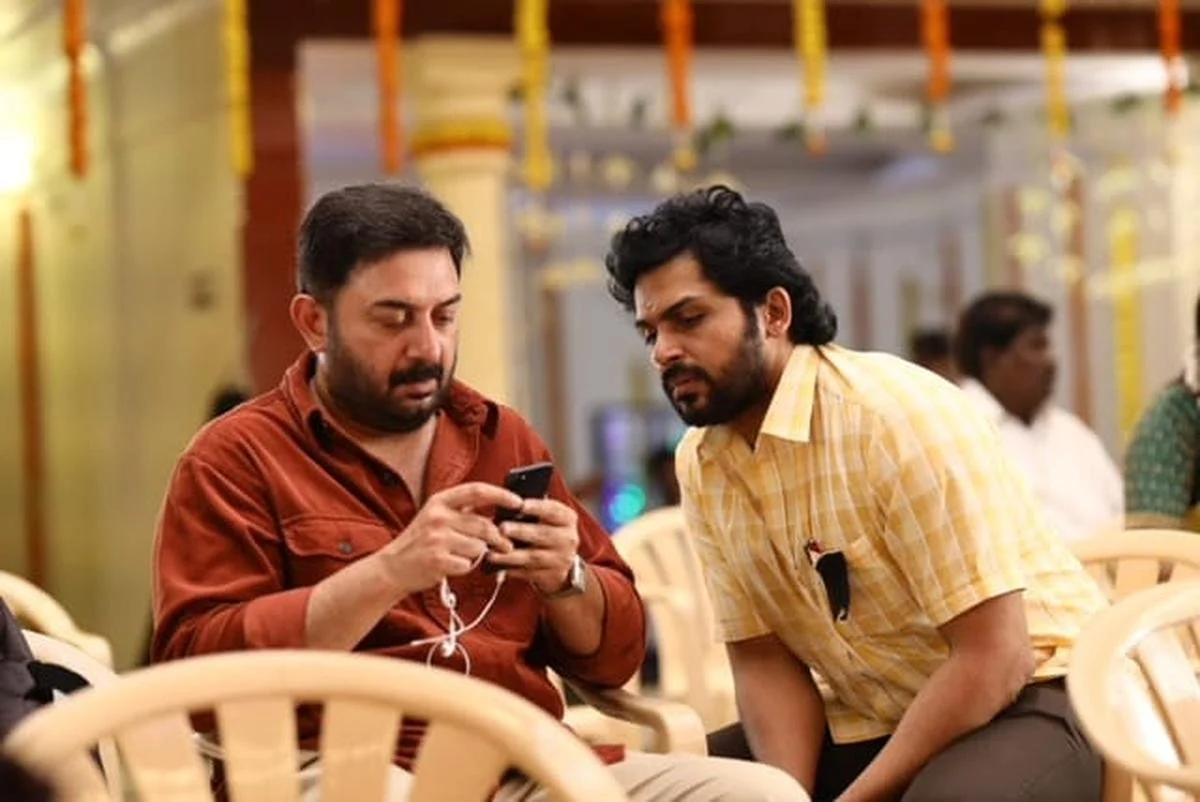Darna Zaroori Hai: The Evolution of Horror in Bollywood
From the fantastical to socio-psychological, comedic to gory, Nivedita Dey traces the diverse trends and the masters who shaped the genre since its appearance in the late-1940s.
Talking the Talk: MEIYAZHAGAN and the Therapeutic Effect of Conversation
C. Prem Kumar’s Meiyazhagan reminds viewers of the beauty of pausing for a while, reflecting, and reconnecting. It shows that deep down, we are all broken souls, yearning for a companion to listen, to open our hearts without the fear of judgements. By Deepthi Mary Alex
‘Shockingly Beautiful’: Ranking the Best of Bollywood in 2024
In an uneven year for Bollywood, Nivedita Dey picks seven of the finest releases—films that combatted themes of patriarchy, politics, disability, religious fanaticism, and more.
The many dichotomies of ALL WE IMAGINE AS LIGHT
Age and youth, love found and love lost, a city of excess and a city of scarcity—Sarthak Parashar examines the many contrasts balanced by Payal Kapadia in the acclaimed All We Imagine As Light (2024).
Lost Women and Found Freedoms
Kiran Rao’s Laapataa Ladies (2024) is a film that makes serious societal commentary on the socio-cultural, economic, and governance aspects of women empowerment, wrapped within a multi-layered satire. By Kausik K. Bhadra
Mythological Narratives, Scientific Imaginations
From Kalki 2898 AD, Brahmastra, and beyond, Indian cinema has become oversaturated with sci-fi films that focus on motifs from religion and mythology, fixating on technical effects rather than innovative ideas and storytelling. By Marnina (Avirup)
The Grand Cinema of Taking Offense
Considering the polarizing socio-political climate in the country, Sneha Bengani examines censorship and outrage in Hindi cinema, and the consequences of heightened intolerance towards this democratic, transformative medium.
Rainbows on the Silver Screen
From Ek Ladki Ko Dekha Toh Aisa Lagaa, Badhai Do, Shubh Mangal Zyada Saavdhan, and more, a fresh lease of life seems to have been granted to a responsible on-screen LGBTQIA+ representation in the glitzy-verse of commercial Bollywood over the past decade. By Nivedita Dey
Gone Girls
Told through the prism of a Shakesperean comedy of errors and mistaken identities, Kiran Rao’s Laapata Ladies (2024) explores the various paths to female self-determination in rural India. By Karan Madhok
A Caste-Ridden Society, in Checkmate
The 2017 documentary Turup reminds viewers of how we are all trapped in a haunted physical world, rife with symbols of pathos; and yet, the revolutionary yearning echoes itself in the corners of the strangest of rooms. By Anamitra Bora
The Interplay of Fear and Courage in WHILE WE WATCHED
Directed by Vinay Shukla, While We Watched focuses on how journalist Ravish Kumar holds onto the basic tenets of ethical journalism in a country facing informational crisis and democratic backsliding. By Archit Nanda
Luck, Chance, and Cinema
Released 15 years ago, Zoya Akhtar’s Luck By Chance (2009) was a stinging critique of the shabbiness and the showmanship of the Hindi film industry, where one of the industry’s own looked within and held out a mirror for all to see. By Sneha Bengani















